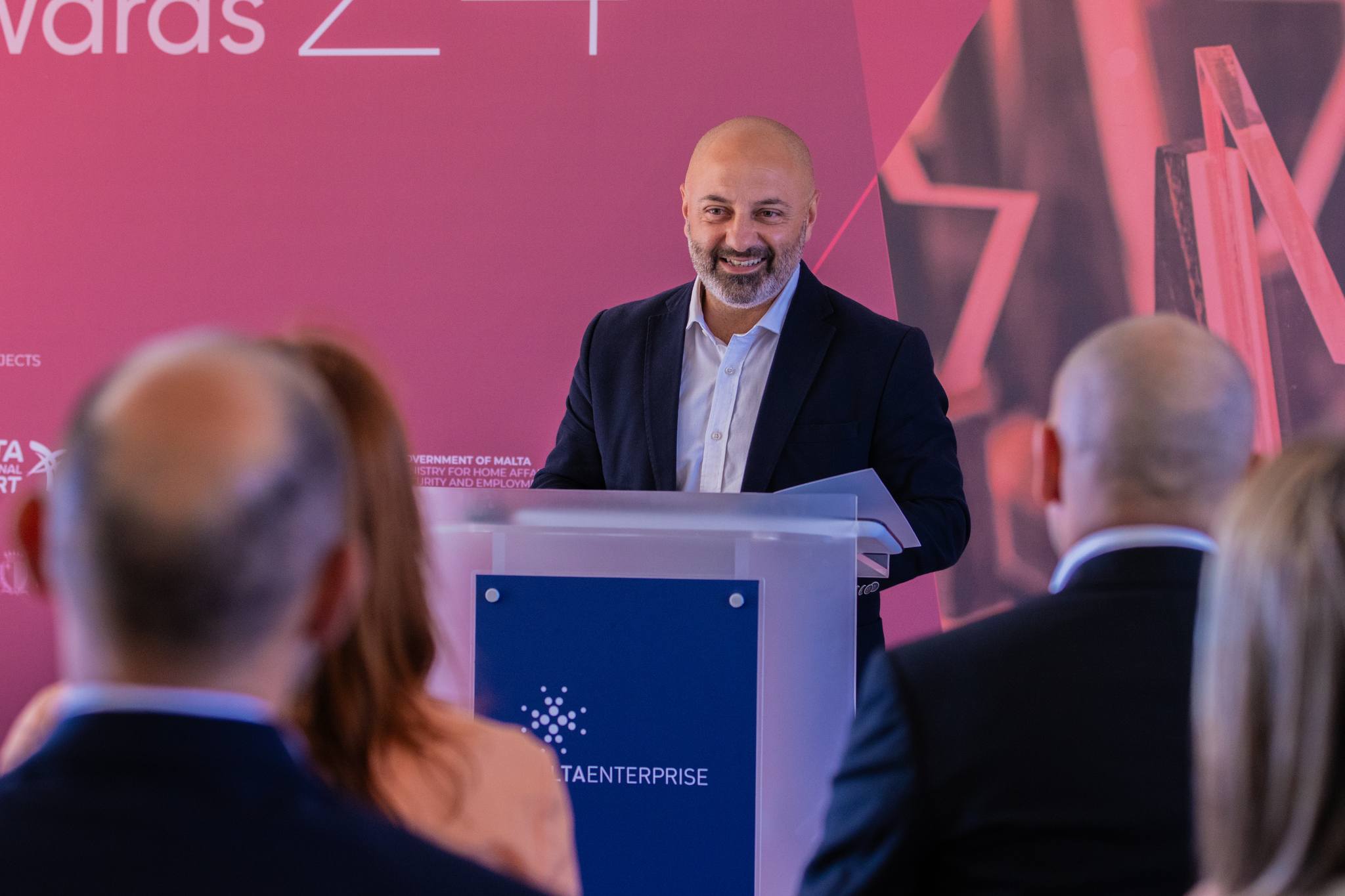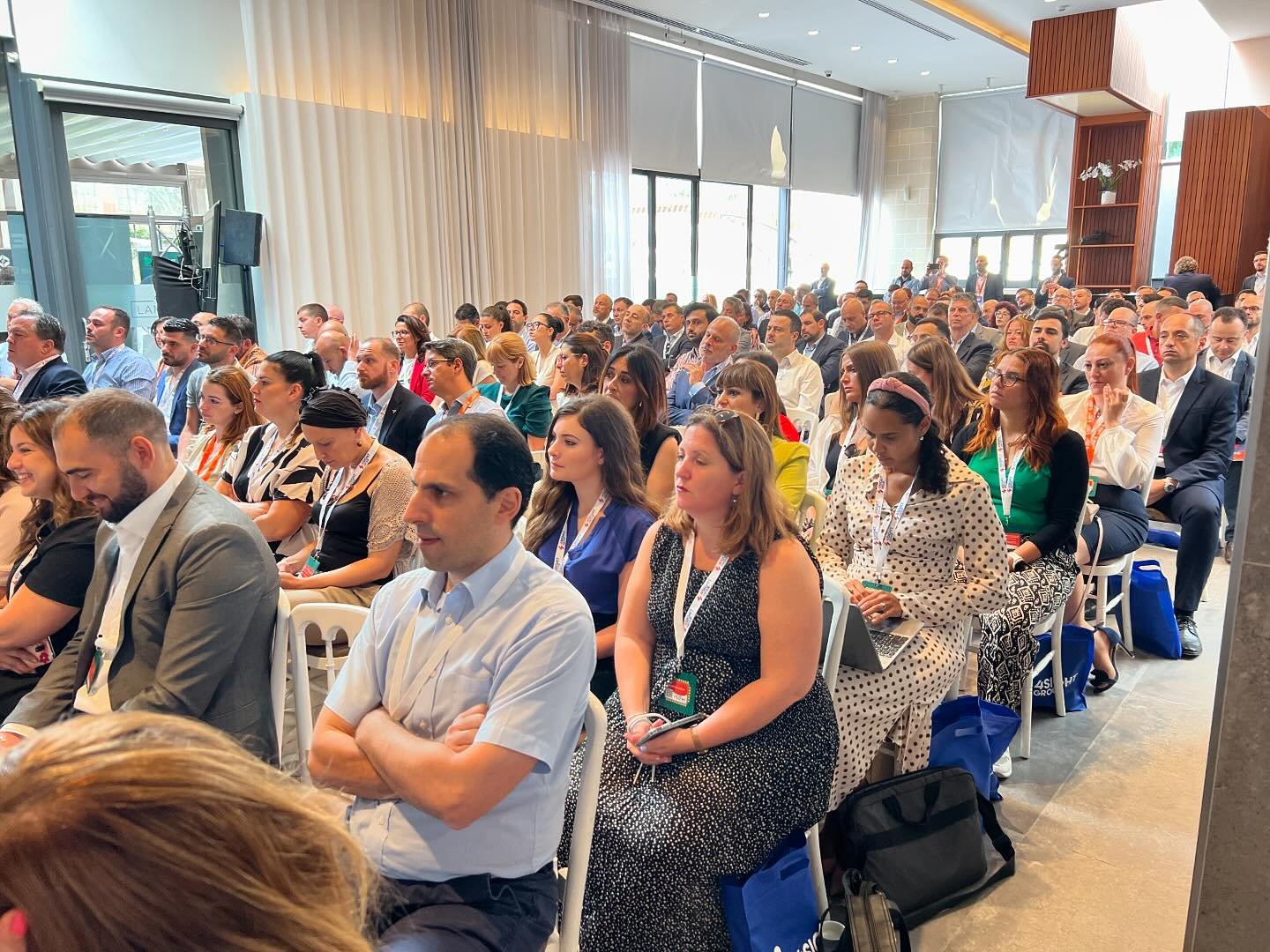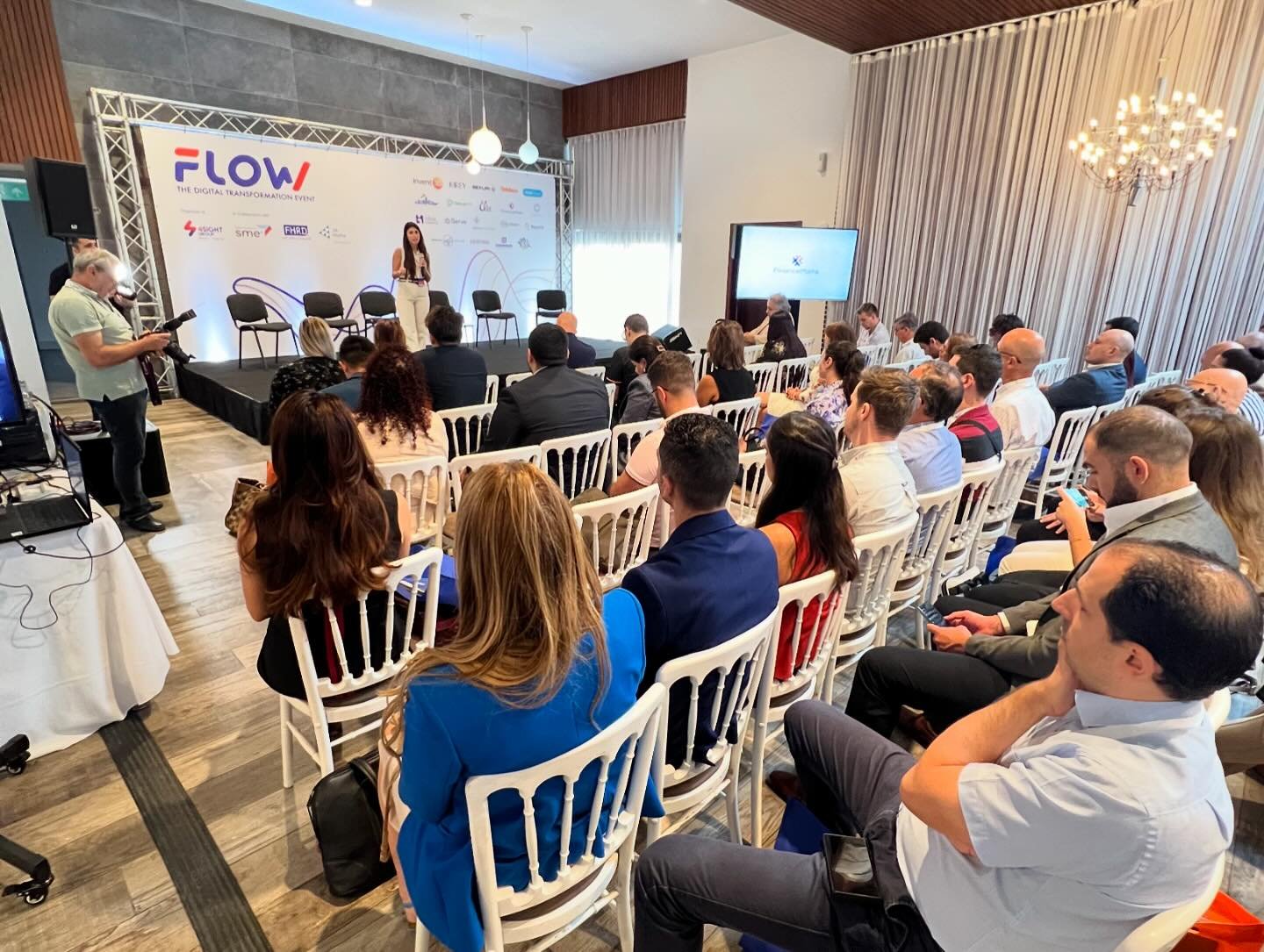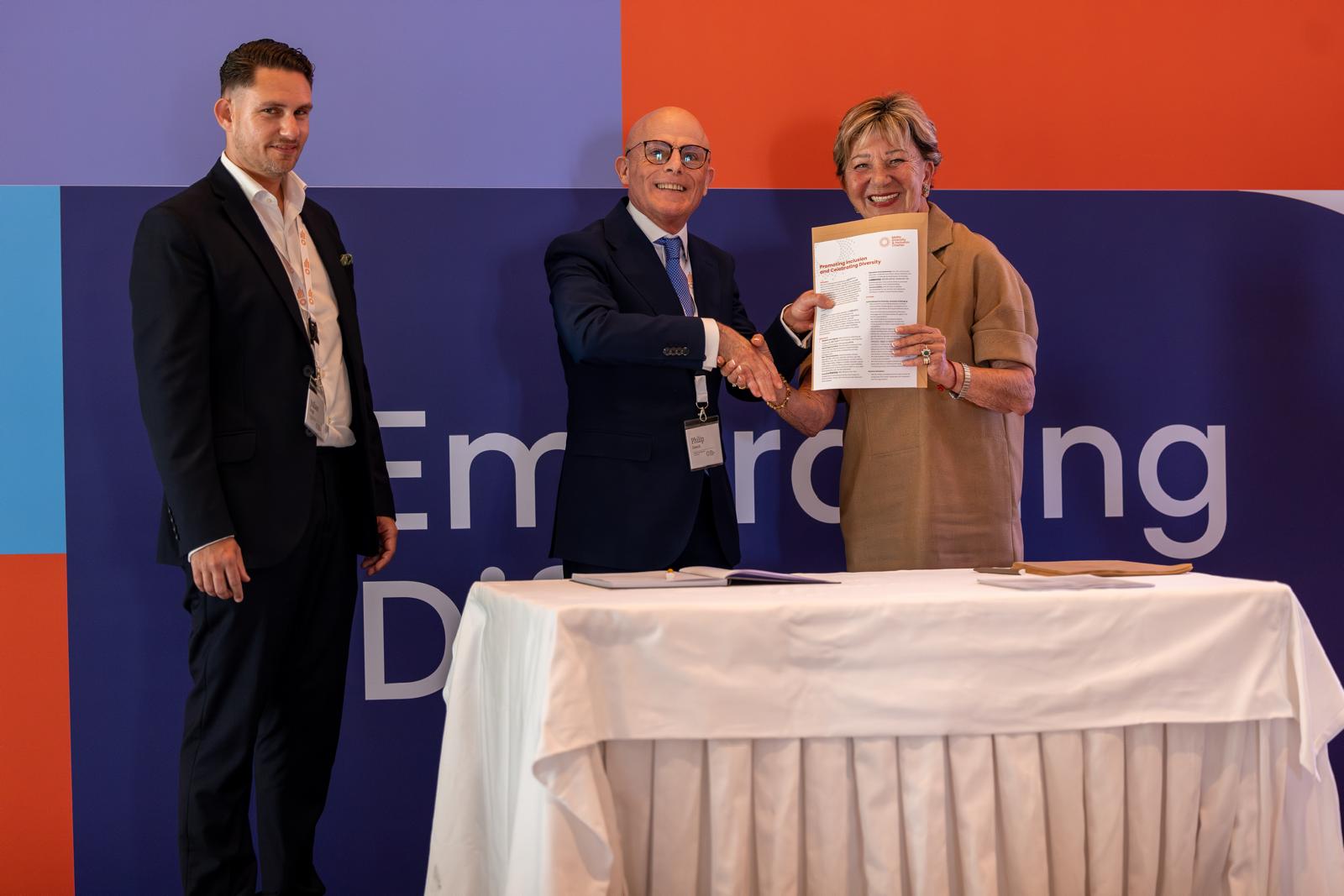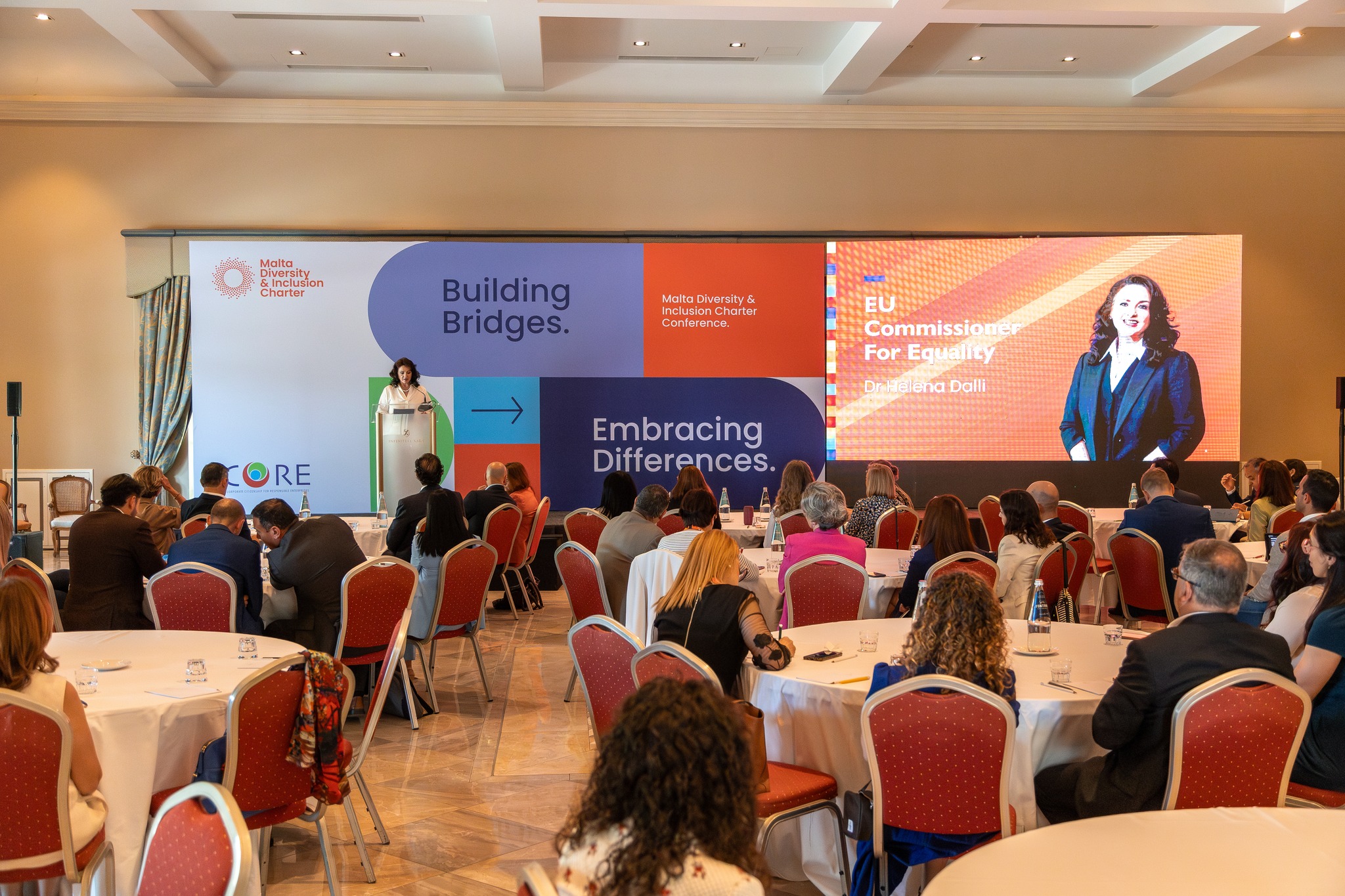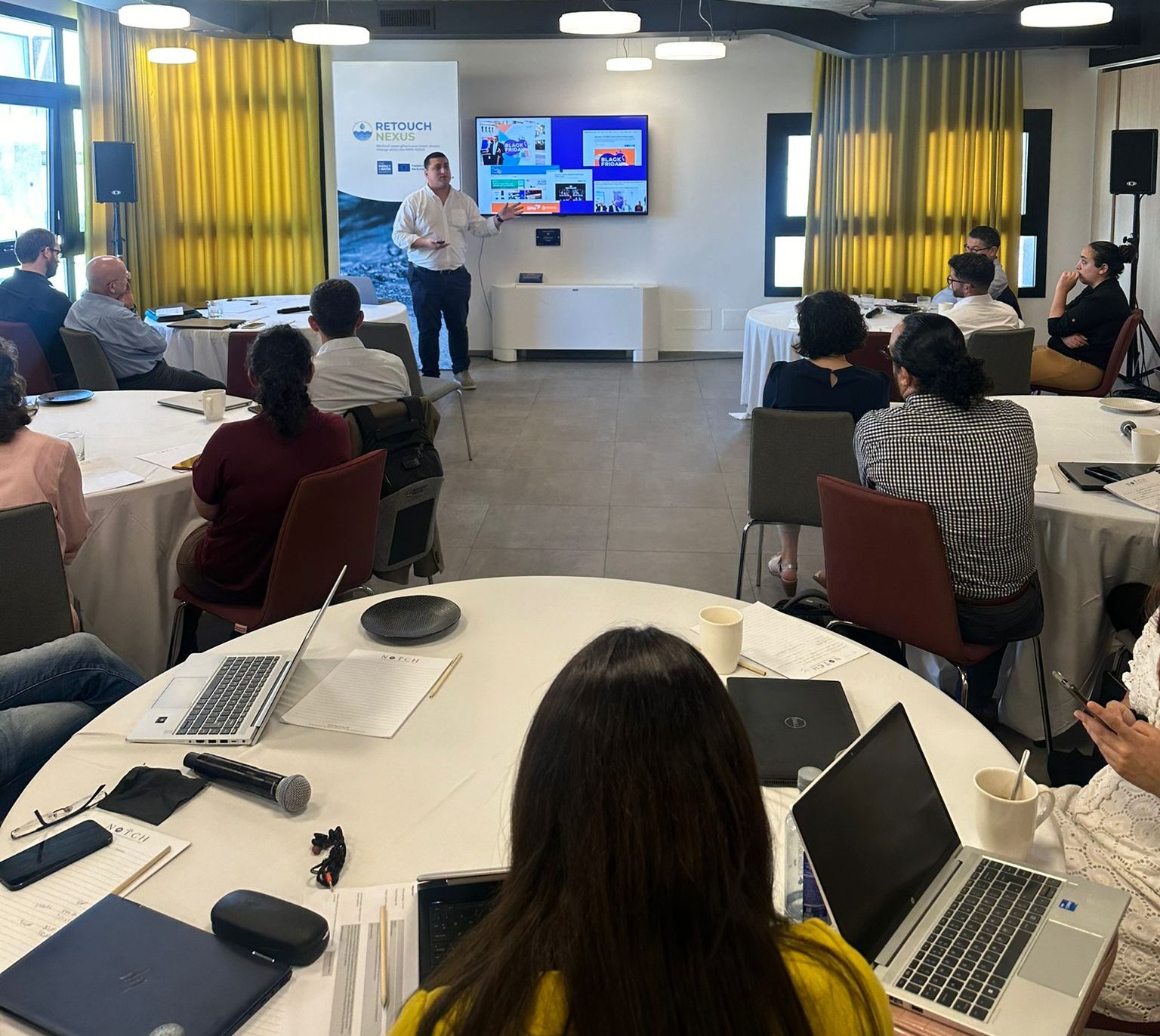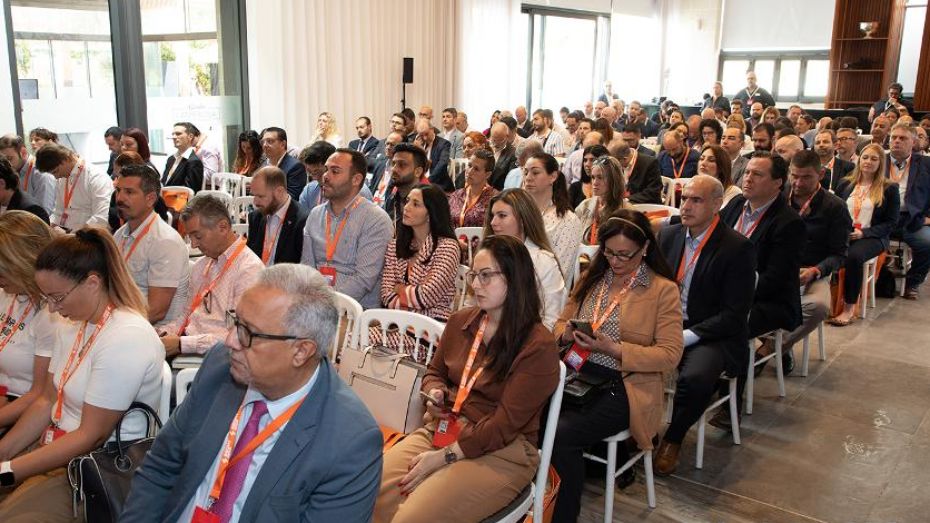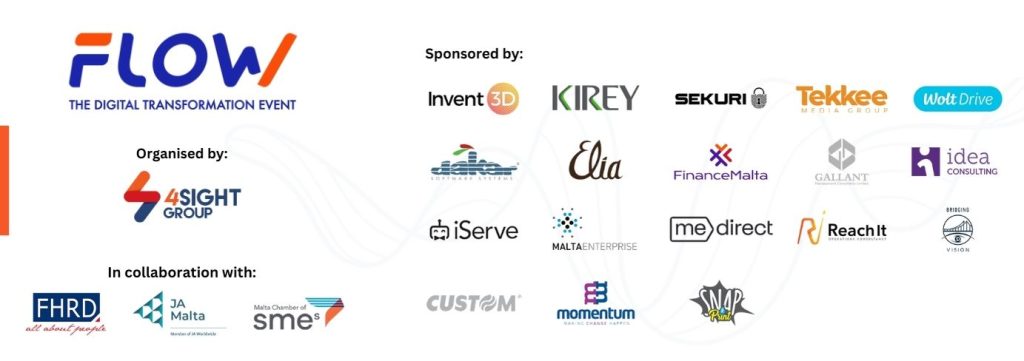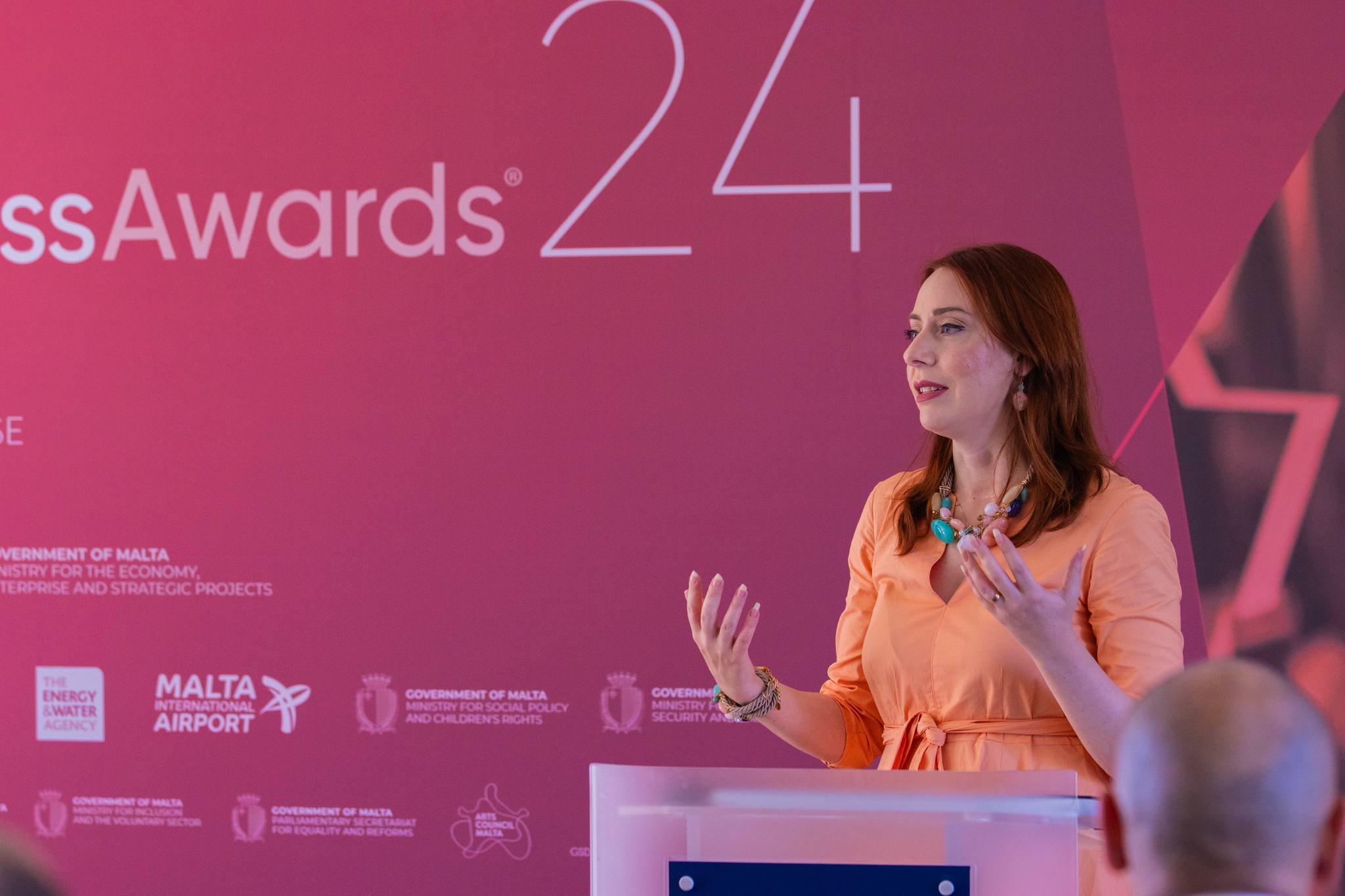
Following the success of the first two editions, the third edition of the Malta Business Awards is being launched today by the Malta Chamber of SMEs in collaboration with Malta Enterprise.
With the launch of the awards, applications opened which will remain open until 7th August.
During this year’s edition, 23 awards will be available within 4 different categories, Distinct initiatives, Innovative & Sustainable Ambassadors, Celebrating Business and National Transport.

List of awards:
Distinct Initiatives – supported by Enemed
- Exceptional Wellbeing at the Workplace – Supported by Ministry for Home Affairs, Security and Employment
- Social Impact Award – Supported by Enemed
- Leader in Mental Health Wellness Award – Supported by Ministry for Social Policy and Children’s Rights
- Leader in inclusivity – Supported by Ministry for Inclusion and the Voluntary Sector
- Local Cultural Contributor – Supported by Arts Council Malta
- Customer Service Excellence Award – Supported by Malta International Airport
Innovative & Sustainable Ambassadors
- Best Waste Management Strategy – Supported by Wasteserv
- Project Green – Supported by Project Green
- Innovative Digital Solution – Supported by Malta Digital Innovation Authority (MDIA)
- Innovative Sustainable Business Award – Supported by APS Bank
- Business Leader in Energy and Water Sustainability – Supported by Energy and Water Agency
- Leader in Quality Tourism – Supported by Malta Tourism Authority
Celebrating Business
- President’s Choice Award – Supported by Malta Chamber of SMEs
- Gozo Business of the Year – Supported by Ministry for Gozo
- SME of the Year – Supported by Malta Enterprise
- Small Business of the Year – Supported by Malta Chamber of SMEs
- Young Entrepreneur of the Year – Supported by GSD Marketing
- Female Entrepreneur of the Year – Supported by Parliamentary Secretariat for Equality and Reforms
- Family Business of the Year – Supported by Malta Chamber of SMEs
- Start-up Business of the Year – Supported by Trust Payments
National Transport – Supported by Ministry for Transport, Infrastructure and Public Works
- Smart Transport Initiative
- Green Transport Initiative
- Logistics Solution Award
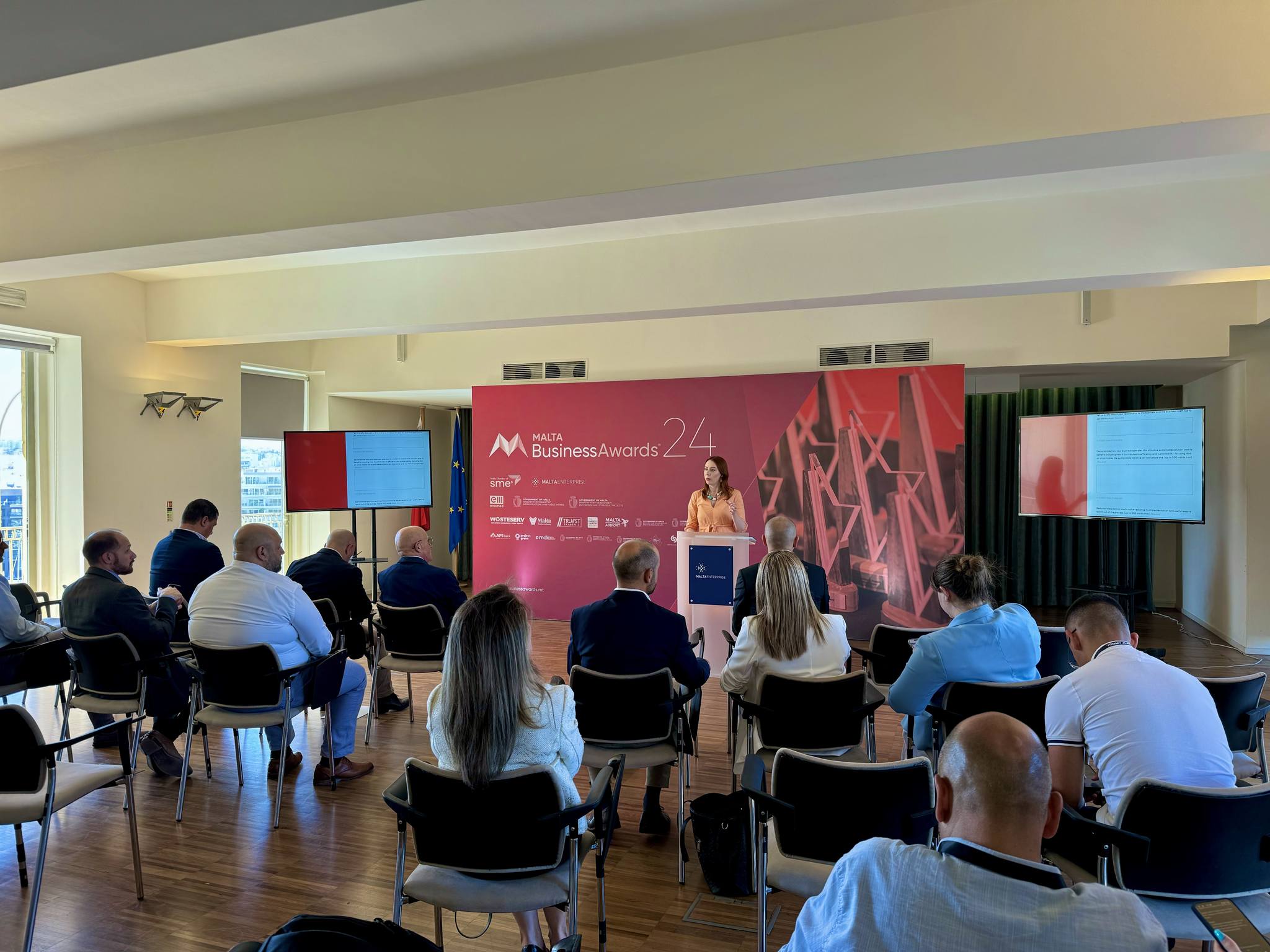
The launch was addressed by SME Chamber Deputy President Philip Fenech together with Malta Enterprise CEO Kurt Farrugia and Chief Executive Abigail Agius Mamo.
Malta Enterprise CEO Kurt Farrugia said these awards are a natural continuation of the work we do as Malta Enterprise in supporting businesses. We will continue to work to support businesses both through our incentives and support measures but also through opportunities like this one which allows us to shine a light on the work which is being done by businesses.
Mr Farrugia added, “we encourage all businesses to make the most out of this opportunity and apply for all of the different categories!”
The CEO of the Malta Chamber of SMEs Abigail Agius Mamo urged businesses to apply for the Malta Business Awards by 7th August at www.maltabusinessawards.mt/application/
Agius Mamo explained that companies can apply for more than one award. It also announced that the first selected companies would be announced on 10th September and the finalists would be announced on the 10th October. The final evening will take place on the 15th November 2024.
For more information about the Malta Business Awards one can visit www.maltabusinessawards.mt.
